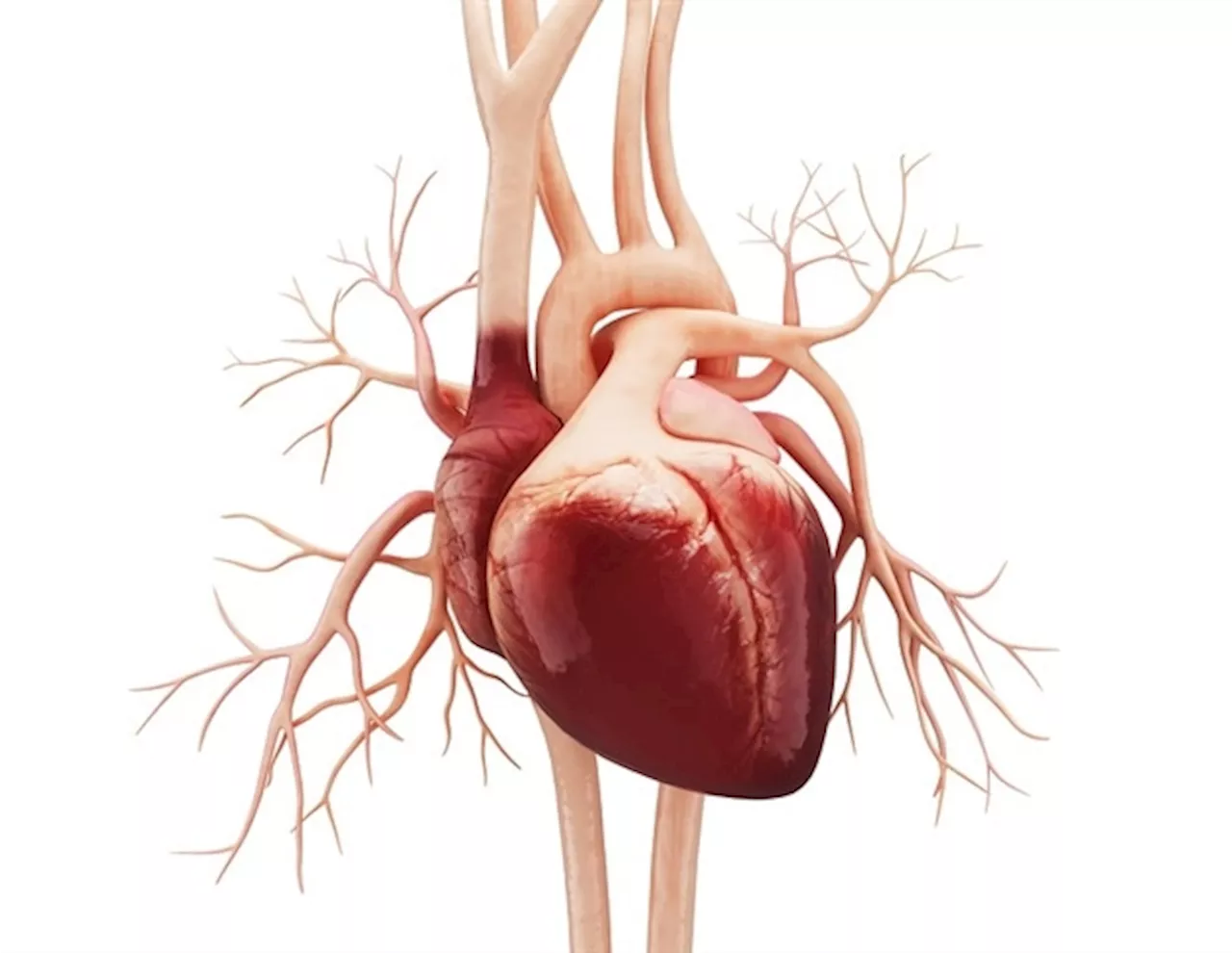To the known risk factors for cardiovascular disease-;high blood pressure, high cholesterol, diabetes, overweight and obesity, smoking, and physical inactivity-;a new one has to be added: clonal hematopoiesis.
Centro Nacional de Investigaciones Cardiovasculares Carlos III Aug 30 2024 This condition is triggered by acquired mutations in blood stem cells and was already known to be associated with an elevated cardiovascular risk. However, until now it was uncertain if clonal hematopoiesis was a cause or consequence of cardiovascular disease .
The Nature Medicine study clarifies the relationship between clonal hematopoiesis and atherosclerosis through a longitudinal analysis of data from the PESA-CNIC-Santander study. PESA is a prospective study of more than 4000 apparently healthy middle-aged participants who have undergone periodic examinations using advanced imaging technology since 2010 to detect the presence and progression of asymptomatic atherosclerosis. PESA is a collaborative initiative of the CNIC and Santander Bank.
The results of the study have clear clinical implications and identify clonal hematopoiesis as a cardiovascular risk factor completely different from the traditional risk factors studied in recent decades. This novelty holds promise for the development of new strategies for the prevention of cardiovascular disorders.
Atherosclerosis Blood Blood Pressure Cardiology Cardiovascular Disease Cell Cell Division Cholesterol Colchicine Diabetes DNA Gene Heart Hematopoiesis High Blood Pressure High Cholesterol Imaging Medicine Obesity Research Smoking Stem Cells Technology
United Kingdom Latest News, United Kingdom Headlines
Similar News:You can also read news stories similar to this one that we have collected from other news sources.
 Effectiveness of heart therapies and outcomes for patients with clonal hematopoiesis of indeterminate potential: Q&ANicholas A. Marston, MD, MPH, of the TIMI Study Group and Carl J. and Ruth Shapiro Cardiovascular Center at Brigham and Women's Hospital, is the corresponding author of a paper published in Nature Medicine, 'Clonal hematopoiesis, cardiovascular events and treatment benefit in 63,700 individuals from five TIMI randomized trials.
Effectiveness of heart therapies and outcomes for patients with clonal hematopoiesis of indeterminate potential: Q&ANicholas A. Marston, MD, MPH, of the TIMI Study Group and Carl J. and Ruth Shapiro Cardiovascular Center at Brigham and Women's Hospital, is the corresponding author of a paper published in Nature Medicine, 'Clonal hematopoiesis, cardiovascular events and treatment benefit in 63,700 individuals from five TIMI randomized trials.
Read more »
 Scientists discover a new cardiovascular risk factor and identify a drug able to reduce its effectsTo the known risk factors for cardiovascular disease—high blood pressure, high cholesterol, diabetes, overweight and obesity, smoking, and physical inactivity—a new one has to be added, clonal hematopoiesis.
Scientists discover a new cardiovascular risk factor and identify a drug able to reduce its effectsTo the known risk factors for cardiovascular disease—high blood pressure, high cholesterol, diabetes, overweight and obesity, smoking, and physical inactivity—a new one has to be added, clonal hematopoiesis.
Read more »
 Analyzing the impact of heart disease treatments on patients with CHIPNicholas A. Marston, MD, MPH, of the TIMI Study Group and Carl J. and Ruth Shapiro Cardiovascular Center at Brigham and Women's Hospital, is the corresponding author of a paper published in Nature Medicine, 'Clonal hematopoiesis, cardiovascular events and treatment benefit in 63,700 individuals from five TIMI randomized trials.
Analyzing the impact of heart disease treatments on patients with CHIPNicholas A. Marston, MD, MPH, of the TIMI Study Group and Carl J. and Ruth Shapiro Cardiovascular Center at Brigham and Women's Hospital, is the corresponding author of a paper published in Nature Medicine, 'Clonal hematopoiesis, cardiovascular events and treatment benefit in 63,700 individuals from five TIMI randomized trials.
Read more »
 Adam Boulton: Bank holiday travellers beware - getting to and from Europe is about to get a whole lot harderThe rules governing travel to Europe are about to change, as a long-postponed consequence of the Brexit referendum sees the 27-nation bloc demand a £6 de-facto visa to get in, along with fingerprint and biometric tests.
Adam Boulton: Bank holiday travellers beware - getting to and from Europe is about to get a whole lot harderThe rules governing travel to Europe are about to change, as a long-postponed consequence of the Brexit referendum sees the 27-nation bloc demand a £6 de-facto visa to get in, along with fingerprint and biometric tests.
Read more »
 Scientists discover a new cardiovascular risk factor and identify a drug able to reduce its effectsTo the known risk factors for cardiovascular disease—high blood pressure, high cholesterol, diabetes, overweight and obesity, smoking, and physical inactivity—a new one has to be added, clonal hematopoiesis.
Scientists discover a new cardiovascular risk factor and identify a drug able to reduce its effectsTo the known risk factors for cardiovascular disease—high blood pressure, high cholesterol, diabetes, overweight and obesity, smoking, and physical inactivity—a new one has to be added, clonal hematopoiesis.
Read more »
 Effectiveness of heart therapies and outcomes for patients with clonal hematopoiesis of indeterminate potential: Q&ANicholas A. Marston, MD, MPH, of the TIMI Study Group and Carl J. and Ruth Shapiro Cardiovascular Center at Brigham and Women's Hospital, is the corresponding author of a paper published in Nature Medicine, 'Clonal hematopoiesis, cardiovascular events and treatment benefit in 63,700 individuals from five TIMI randomized trials.
Effectiveness of heart therapies and outcomes for patients with clonal hematopoiesis of indeterminate potential: Q&ANicholas A. Marston, MD, MPH, of the TIMI Study Group and Carl J. and Ruth Shapiro Cardiovascular Center at Brigham and Women's Hospital, is the corresponding author of a paper published in Nature Medicine, 'Clonal hematopoiesis, cardiovascular events and treatment benefit in 63,700 individuals from five TIMI randomized trials.
Read more »
